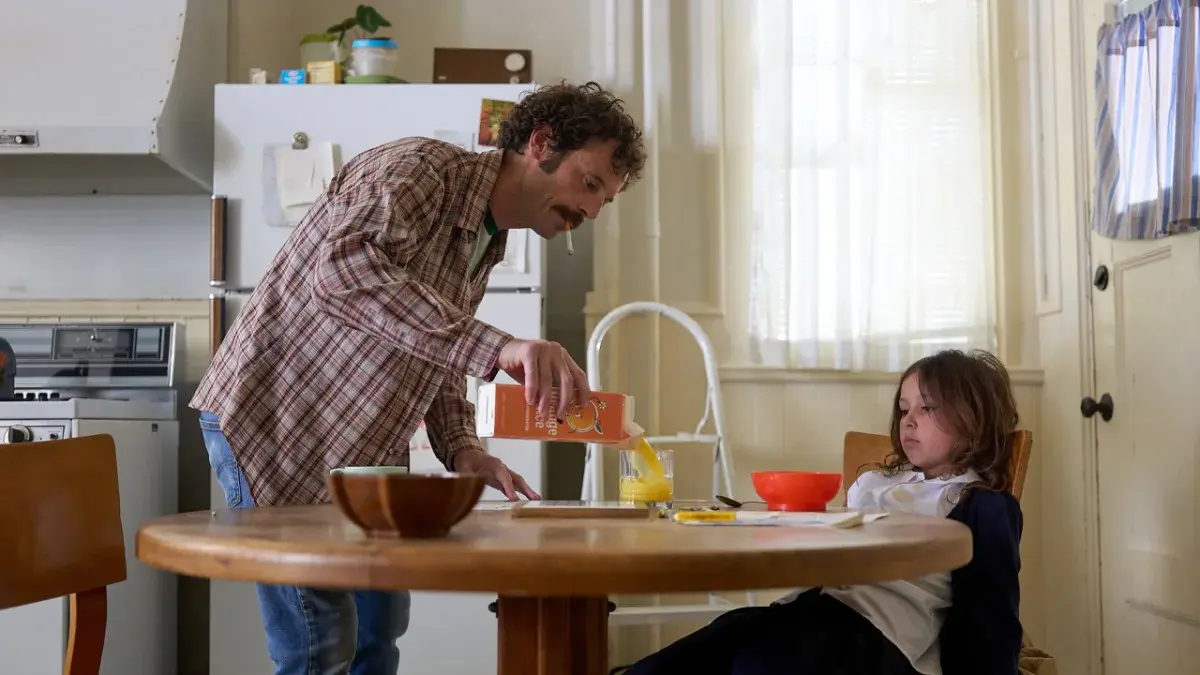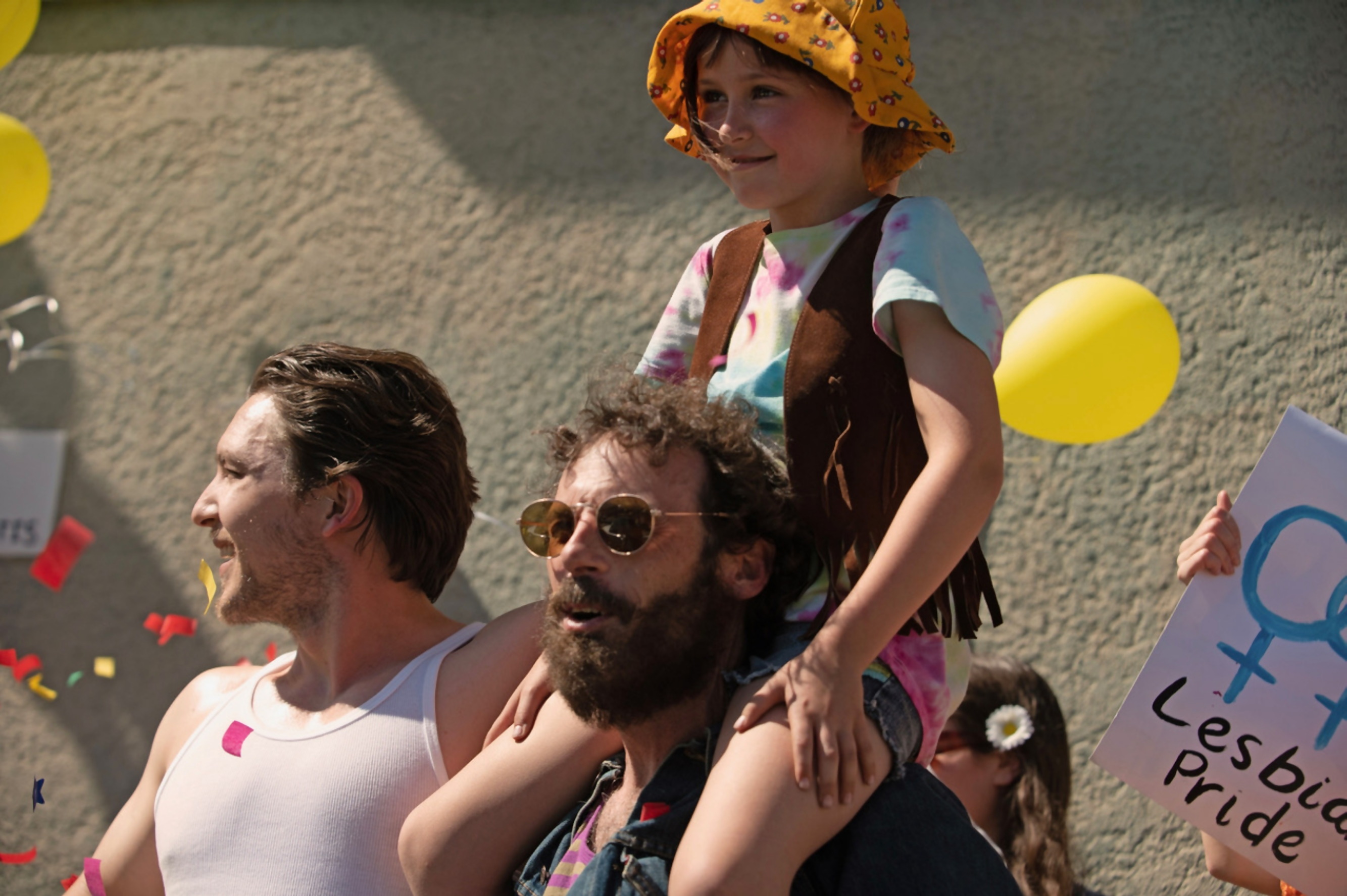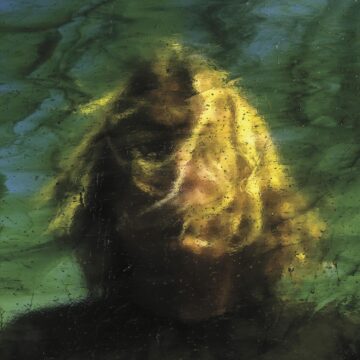★★★☆☆
Andrew Durham makes his feature film debut as the director, writer and producer of Fairyland. The film, based on Alysia Abbott’s memoir ‘Fairyland: A Memoir of My Father’, chronicles her non-traditional upbringing in San Francisco. After the tragic death of her mother in a car accident, Alysia and her father Steve (Scoot McNairy) move to the Golden Gate City.
Living in a shared flat, Steve, a poet with a heart of gold, comes out as gay. Alysia’s childhood is loving, but her father struggles to raise her, especially with virulent anti-LGBTQ attitudes running rampant. The AIDS epidemic soon starts to raise its head too, and Alysia’s relationship with Steve is tested in unexpected ways.
Fairyland plays out like a pretty by-the-numbers film based on someone’s memoir. The narrative doesn’t offer surprises, but the committed performances elevate it. Most of the conflict in Fairyland comes from the push-and-pull dynamic of Steve’s parenting; he’s loving, for sure, but also prone to abandoning Alysia alone at home while he’s out drinking and picking up guys.

Credit: American Zoetrope
Fairyland’s biggest achievement is never judging Steve. He’s never portrayed as anything but loving and caring, if inherently out of his depth. The casting of McNairy helps immensely too; he’s an actor whose presence is always a welcome addition to any film. McNairy plays Steve as a wide-eyed newcomer to the scene who is trying to find his place and his truest self while balancing his new lifestyle with raising a daughter. Later on, both his character and his performance mature and take on a darker tone.
Emilia Jones, so wonderful in Oscar-winner CODA, shines here yet again. Her layered, complex performance as Alysia works well with McNairy’s more straightforward performance. The two are also surrounded by a roster of impressive supporting actors. Cody Fern makes a particularly strong impression as Eddie, an early beau of the newly-out Steve.
Perhaps it’s due to Fairyland being based on a memoir and memories being fleeting in nature, but many of the supporting characters disappear without explanation. Alysia notes that she often played dress-up with their gender-queer roommate Johnny, but aside from a brief scene where Alysia asks Johnny to apply make-up on her, we never see her interact with him or the extravagant friend Paulette (Guardians of The Galaxy Vol.3’s Maria Bakalova). Johnny simply ceases to exist until he’s mentioned again later in the film.
Shot on film, Fairyland has a very authentic feel of the 70s and 80s. There’s a beautiful texture to the images Durham creates, the slight grain to the film gives it a distinct feel and helps sell the time period Fairyland is set in.
When Alysia is a child, the camera is often positioned low, at her eyeline. The various people who come and go from the parties held at their house become headless bodies and a swarm or arms and thighs without faces. When the story moves to the 80s, Steve’s queerness becomes a source of embarrassment and shame for Alysia. Durham tackles the difficult subject head-on and handles it with care and sensitivity. Sometimes, though, Fairyland is a little too sensitive, refusing to ask some of the more difficult questions about Steve’s parenting.
Durham, a former photographer, has a keen eye for visuals and shot composition, but Fairyland can’t quite escape its rather predictable narrative. At its best, Fairyland acts as a fascinating look at queerness in America at a certain time, but the film is also shot through a rose-tinted lens; Durham is too scared to question his characters, opting for an uncomplicated, uplifting look at Steve and Alysia Abbott.
Fairyland is screening as part of Sundance Film Festival London now.





